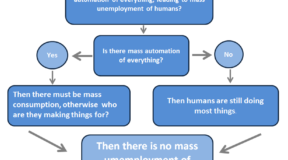
Recently, Jordan Peterson has been mentioning and asking questions about Ayn Rand on his show’s guests. Some of these comments prompted a response from the Ayn Rand Institute (ARI). Much of what was said on both sides were criticisms, paving the way for the question, are any of these criticisms warranted on either side? Yaron Brook, former executive director of ARI, had a more favorable analysis of Jordan Peterson’s comments on Ayn Rand in Peterson’s Michael Malice interview, stating that Jordan Peterson is asking the right questions.
With consecutive guests being questioned about Ayn Rand and about essentially the same issue, I think we can, at the least, safely assume that Peterson is probably thinking through some of Ayn Rand’s ideas currently rather than attacking her. I went back and consumed an assortment of Jordan Peterson’s content in order to get better context for his comments, and I personally think there is an opportunity to bridge the gap between Jordan Peterson and Ayn Rand.
Jordan Peterson’s original comment in question here was on Ayn Rand’s view of selfishness or self-interest. You can watch the entire segment here; the part about Ayn Rand starts at minute 1:18. He says, and I quote:
“She assumes that self-interest is the appropriate governing principle but she never really defines what constitutes self-interest, and that’s a big problem because you can have narrowly hedonic self-interest.”
Now, before you jump to interpret this as a misrepresentation of objectivism and an attack on Ayn Rand, consider the following context. Peterson is specifically talking about what he got out of reading Atlas Shrugged, not Ayn Rand’s philosophical works on objectivism. You should also be aware that much of Peterson’s work deals with reading texts and extracting from them archetypical lessons that the texts are trying to communicate. I think he is in the process of doing the same thing with Atlas Shrugged. Rather than misrepresenting Ayn Rand, he is trying to extract the ideas embodied in Atlas Shrugged and think them over. This becomes more apparent if you listen to his Michael Malice interview, which you can find here.
ARI ended up responding and criticizing Peterson for his comments here. Before you take issue with their criticism of Peterson, consider this. Ayn Rand has been the subject of many smears from both the left and the right. The Ayn Rand Institute has been tasked with the job of addressing those smears and or misrepresentations of objectivism. Objectivism’s stance on self-interest is something that is pretty constantly and frequently misrepresented. This is something that ARI is very used to, and it has become their expectation when hearing Ayn Rand mentioned.
Now, the good news is that if we take Jordan Peterson’s and Ayn Rand’s actual views on hedonism, they agree that it is not the appropriate governing principle for guiding action. Peterson states that,
“From the perspective of Ethics, narrow self-interest is not the highest self, not the true self, it’s just the immature and impulsive self. So the more immature you are, the more you are ruled by motivations that want to attain gratification right now, regardless of medium to long-term cost. And so actually what happens is that as you mature, and you learn to delay gratification, to subordinate the demands of immediate motivational and emotional states to long-term social harmony and your own long-term well-being, and this requires a sacrifice of that immediate gratification.”
Rand states something very similar,
“I am profoundly opposed to the philosophy of hedonism. Hedonism is the doctrine which holds that the good is whatever gives you pleasure and, therefore, pleasure is the standard of morality. To say that pleasure should be the standard of morality simply means that you are to be guided by chance feelings, emotions, and whims, not by your mind. If men are to succeed, man has to choose his course, his goals, his values in the context and terms of a lifetime.”
From those statements, we see that both Peterson and Rand subscribe to the idea that long-term rational planning is the proper guiding principle for human action. As an objectivist, one might take objection to Peterson’s claim that this requires sacrifice.
However, here again, we should first take a look at what Peterson means by sacrifice. For more context on this, we can listen to Jordan Peterson’s interview with Sam Harris here, minute 59 to roughly minute 1:14. Jordan Peterson here gives an example of what parents have to sacrifice to send their children to a university. He describes it as a bargain with the structure of reality where the parents give up certain gratifications in order to reap a greater reward at a later time. He later again states that it is reasonable for a person to sacrifice in order to attain what they consider to be the highest value. Peterson defines sacrifice as giving up a value in order to attain a greater value. This, of course, is the exact opposite of how an objectivist would define the term sacrifice, the giving up of a greater value for a lesser one, or no value. However, since Peterson does use it to mean to attain a greater value, this is in line with objectivist views. Again this appears to just be a semantics gap, which can be easily bridged.
Now that we know the full context of the situation, the issue between Jordan Peterson and ARI seems rather insignificant. Peterson is not trying to deliberately misrepresent objectivism, he is thinking about the ideas. Sure he is doing it rather publicly, but since he has chosen to do it publicly this is a great opportunity to try to have that broader discussion with him.




